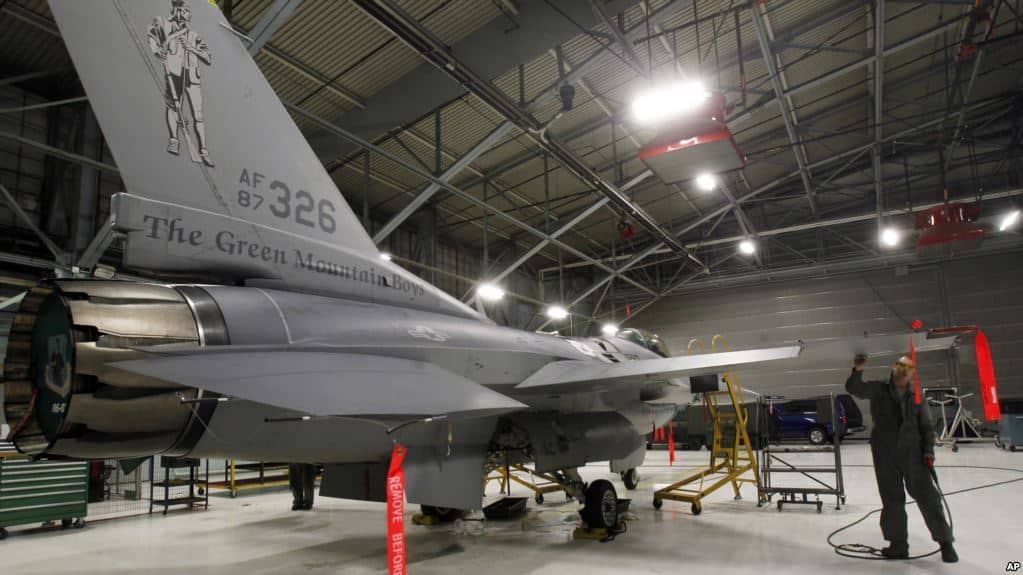
Defense stocks have been on fire in the last year. And with geopolitical turmoil still running hot, that doesn’t look like it will change anytime soon.
But did anyone pass that message along to Credit Suisse? Analysts downgraded the entire defense sector in a note last week, saying, “After six consecutive years of relative outperformance, defense hardware stocks have reached valuation multiples not seen since 2001. But whereas in 2001 those multiples were deserved in light of the beginning of a major land war and the end of an industry consolidation wave, today’s market appears to have gotten ahead of itself.”
In Credit Suisse’s view, future gains have already been priced in for defense stocks. But it seems analysts may be missing that the U.S. presently exists on the precipice of political and global turmoil at any given moment.
We’re certainly not in a land war now. But we’re flirting with a trade war. We’re poking the North Korean bear and, with it, the country’s massive nuclear program. Of all the times to say defense companies have already realized gains, now is not one.
When President Donald Trump announced on Thursday that the U.S. summit with North Korea on June 12 would no longer be happening, the Dow Jones Industrial Average almost immediately slumped 250 points. While the broader market limped along, guess what stocks soared? Defense stocks.
By the end of the session Thursday, Raytheon Co. (RTN) gained 1.33%, Lockheed Martin Corp. (LMT) 0.32%, General Dynamics Corp. (GD) 1.54%, Huntington Ingalls Industries Inc. (HII) 2.58% and Northrop Grumman Corp. (NOC) 1.40%. Both the S&P 500 and the Dow closed into the red. That’s one of the clearest signs yet that defense stocks aren’t overvalued.
“Defense stocks are kind of qualitatively thought of as an asset class you can own because they offer very little risk,” said Melius Research analyst Carter Copeland. “They’re a stock you can own as a hedge against all bad things happening.”
Copeland clarified that he “agrees wholeheartedly” with the Credit Suisse thesis and maintains a neutral outlook on the sector. While he maintains the position that people have failed to look at valuation and inherent worth in the defense sector, he did concede that there is room for “undeniable” near-term momentum in the space.
While the longer-term picture remains nebulous, near-term velocity is irrefutable. Even without taking into account the current storm brewing between the U.S. and its Asian counterparts, this country spends an exorbitant amount on defense even in times of peace. That’s a nice positive for the defense space.
“The geopolitical situation is an increasingly complex one. The world is an unsafe place and the defense spending is going up,” Copeland said, all of which are likely to contribute to near-term defense stock gains.
Over the longer term, defense names won’t outgrow gross domestic product, Copeland said, but they are still “very broadly owned and well loved.”
At least during the Trump administration, defense spending has ballooned to about $606 billion in 2017. And even before he took office, the U.S. defense spending budget was more than that of China, Saudi Arabia, Russia, the UK, India, France and Japan combined.
With growth rates strong and one big customer always looking to replenish its stockpile of advanced weaponry (the government), downgrading your exposure to defense stocks looks like a dumb move.

